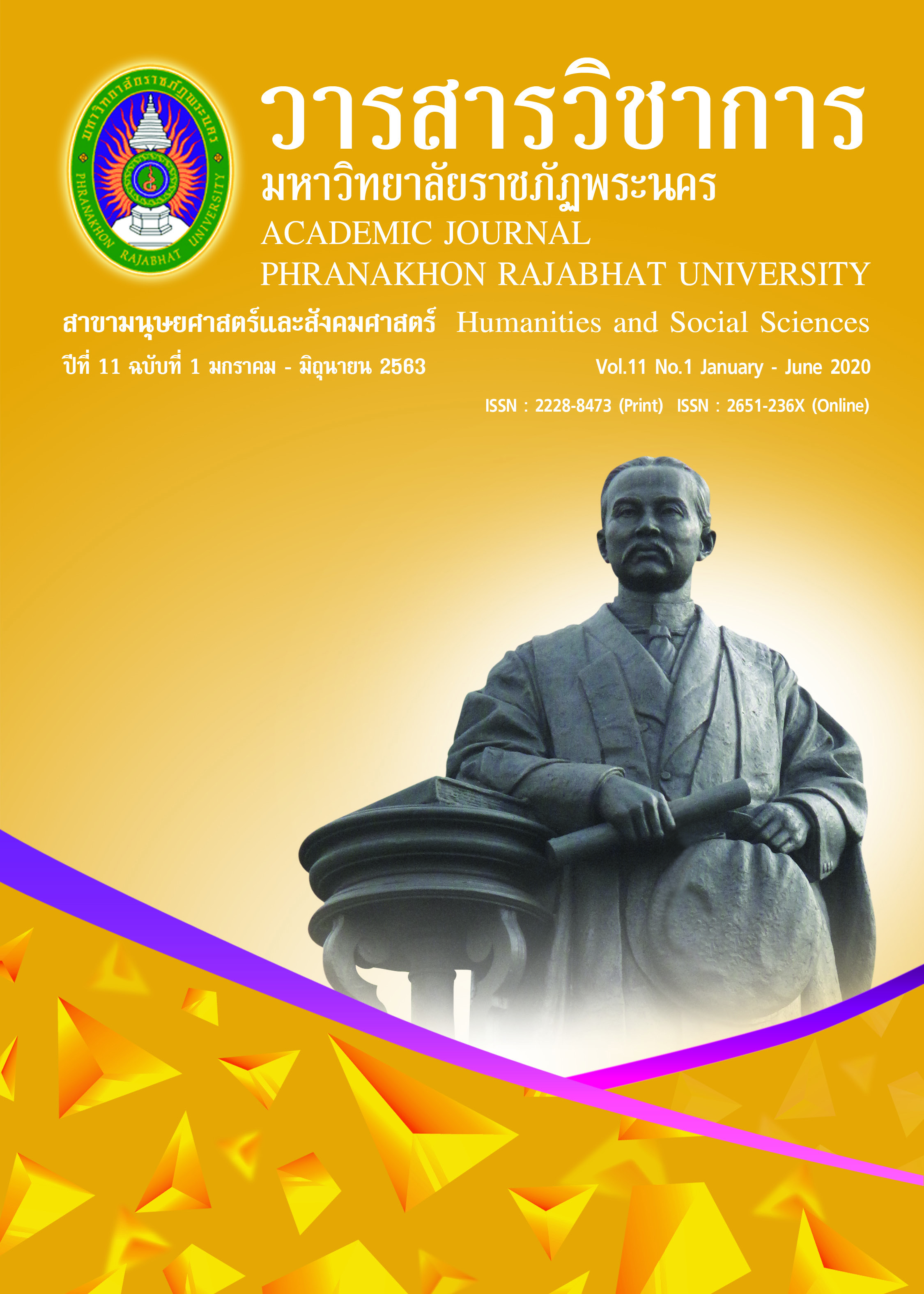FACTORS THAT PROMOTING MARINE ECOTOURISM IN THE EASTERN ECONOMIC CORRIDOR (EEC) A CASE STUDY OF PATTAYA
Keywords:
: Marine Ecotourism, Eastern Economic Corridor (EEC); Pattaya CityAbstract
This research aimed to study of tourism management factors that can promoting sustainable marine ecotourism in Pattaya city of the Eastern Economic Corridor (EEC). The researcher used a qualitative research model by using 400 questionnaires of both Thai and foreign tourists who come to visit Pattaya city on Saturday – Sunday and beginning of the month to collected opinions on sustainable marine ecotourism. The researcher used statistical analysis such as percentage, mean, Independent sample t-test, One-Way ANOVA F-test and Multiple Regression Analysis (MRA). The results showed that the difference of Gender, age, education level, occupation, income and number of marine tourism trips have diference average level of sustainability of marine ecotourism which increasing benefits and reducing negative impacts to socially and economically, culture and environment at statistically significant of 0.05. While tourism management factors that promoting sustainable marine ecotourism in the Eastern Economic Corridor area at significant of 0.05 consist of 1) Social and economic aspects for the local community as an attractions factor with the F = 2.718 Sig. = 0.020 and the decision coefficient (R Square) is 0.33. 2) Cultural aspects for communities and tourists as and accessibility factor with the F = 7.274 Sig. = 0.000 and the decision coefficient (R Square) is 0.085 and 3) Environmental factors as an activities factor with the F = 7.623 Sig. = 0.000 and the decision coefficient (R Square) is 0.88.
References
Boniface, B. & Cooper, C. (2005). Worldwide destinations casebook – the geography of travel and tourism. Burlington, MA: Elesevier.
Collier, A. & Harraway, S. (1997). Principler of Tourism. Auckland: Longman.
Davidson, J. E. (1995). The suddenness of insight. Cambridge, MA: The MIT Press.
Department of Local Administration. (2011). Tourism promotion standards. Bangkok: Ministry of Interior.
Dickman, S. (1996). Tourism: An introductory text (2nd ed.). Melbourne: Hodder Education.
Global Sustainable Tourism Council. (2015). Global Criteria for Sustainable Tourism. Retreived from http://www.smartfunchal.com/wp-content/uploads/2017/05/Luigi-Cabrini.pdf
Holloway, J. C. (1983). The Business of Tourism. Plymouth DC: Taylor & Francis.
Khanal, B. R. and Babar, J. T. (2007). Community-Based Ecotourism for Sustainable Tourism Development in the Mekhong Region. Hanoi, Vietnam: CUTS Hanoi Resource Center.
McIntosh, R. W., & Goeldner, C. R. (1990). Tourism: Principles. Practices Philosophies. 5th ed. New York: John Wiley & Son.
Ministry of Tourism and Sports. (2019). Statistics of foreign tourists visiting Thailand Monthly update. Retrieved from https://www.mots.go.th/more_news.php? cid=529&file name=index
Pattaya information center. (2019). Number of foreign tourists 2015-2016. Retrieved from http://info.pattaya.go.th/_layouts/15/start.aspx#/DocLib5จำนวนนักท่องเที่ยวต่างชาติปี% 202558-2559.aspx
Pond, K. L. (1993). The Professional Guide: Dynamics of Tour Guiding. New Jersey: Prentice- Hall.
Ponna, P. (2009). Community-Based Tourism Development in Sihanoukville. Cambodia. Prince of Songkla University.
Steven, S. (2008). IMPACT: The Effects of Tourism on Culture and Environment in Asia and the Pacific: Alleviating Poverty and Protecting Cultural and Natural Heritage through Community-Based Ecotourism in Luang Namtha, Lao PDR. Bangkok: UNESCO Bangkok.
UNWTO (2014). UNWTO Tourism Highlights Edition 2014. Madrid: United Nations World Tourism Organisation.
Yiamjannya, S. (2012). Thai tourists consumer Behavior and Decision to Visit Saisutnaphadon Tamnak Palace Museum in the Suan Sunandha Palace and marketing mix factors influencing decision making. Master's Degree Thesis, Suan Sunandha University.
Zhang, X., Song, H. and Huang, G.Q. (2009).Tourism Supply Chain Management A New Research Agenda. Tourism Management, 30, 345-358.
Downloads
Published
How to Cite
Issue
Section
License
"บทความวิชาการในวารสารฉบับนี้ ถือเป็นความรับผิดชอบของผู้เขียนเท่านั้น"
สงวนลิขสิทธิ์ตามพระราชบัญญัติลิขสิทธิ์




